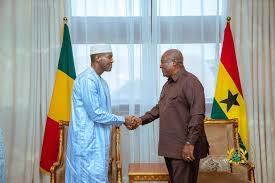Ghana Cancels Sale of Diplomatic Properties in Nigeria and Zambia
Ghana's government has abrogated two agreements entered into by the previous administration to dispose of its diplomatic properties in Nigeria and Zambia. The action, led by new Foreign Affairs Minister Samuel Okudzeto Ablakwa, aims at protecting Ghana's foreign assets against loss and mismanagement.
Background of the Property Sale
In the previous administration, there were agreements for the sale of Ghanaian diplomatic complexes in Abuja, Nigeria, and Lusaka, Zambia. These complexes are key diplomatic missions and residences for Ghanaian ambassadors. The openness and necessity of the transactions have been put into doubt, and so the public outrage and parliamentary probe ensued.
The sale agreements were reported to be part of a grand plan to reconfigure Ghana's foreign assets abroad, allegedly to maximize their use and generate revenue. However, the exercise cast its due diligence, proper valuation, and selling those assets as a right step for Ghana's foreign policy interests in the long term into question.
Government's Reason for Cancellation
Foreign Affairs Minister Ablakwa, during his screening in front of Parliament's Appointments Committee, assured the nation that no diplomatic properties would be sold while he is in office. He emphasized the importance of preserving state properties overseas and condemned earlier deals that were made without proper supervision.
"I am personally spearheading the Protection of State Assets Bill, which I have introduced to Parliament with bipartisan support. I cannot be held to be advocating for the sale of any diplomatic property," Ablakwa added.
The government's rationale is that retaining these properties ensures Ghana's continued diplomatic presence and supports its foreign relations. Selling them, on the other hand, would compromise the country's representation in key nations.
Public and Political Reactions
The cancellation of the sales has been received with divided views by political analysts, lawmakers, and the public. While others have praised the move as a measure necessary to safeguard the properties of Ghana, others question whether it is financially prudent to retain these assets.
Opposition members argue that the government must provide a clear plan for maintaining these properties to avoid financial burdens. They demand a full audit of Ghana’s diplomatic assets to determine whether keeping or selling them aligns with the country’s economic interests.
Civil society groups have also weighed in, demanding greater transparency in the management of state properties. The majority of them believe that while the suspension of the sale is commendable, there has to be a long-term strategy to ensure that Ghana's diplomatic properties are used and maintained efficiently.
Future Plans and Implications
Since these sales are being cancelled, the government also wants to enhance its handling of diplomatic properties rather than selling them off. This can involve refurbishment and reuse of such properties in a manner that utilizes them optimally.
Additionally, the introduction of the Protection of State Assets Bill is a sign of a bigger plan to prevent future mismanagement or sale of government properties without approval. When passed, the bill will have stricter controls over the management of state assets, including diplomatic properties.
The effect of this action extends beyond Ghanaian foreign policy. It is symptomatic of the administration's general attitude towards state asset management and responsible fiscal policy. It is also a precedent that future administrations will be obligated to follow if they are considering selling assets.
Conclusion
The cancellation of Ghana's sale of diplomatic premises in Nigeria and Zambia reaffirms the administration's commitment to safeguarding state property. While the move has evoked praise and criticism, it demonstrates the need for a firm and well-calculated approach in handling national resources. As the government goes on with its policy on state assets protection, the focus now will be on how to make sure that such assets are still of value and in Ghana's interests diplomatically.




No comments yet
Be the first to share your thoughts!